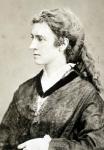Print HOF
Broeg, Bob
Bob Broeg – 2006
It seemed to many that Bob Broeg was around for the very beginnings of baseball. His exposure to the sport began officially at Sportsman’s Park, where he could be found working at one of the gates. He turned his interest into a career, writing for the St. Louis Post-Dispatch, finally achieving the rank of Sports Editor, and was a member of the Baseball Veterans’ Hall of Fame Committee. After covering the Cardinals for 13 seasons until 1958, Broeg spent the next 20 years as sports editor, and as a columnist for both the Post and The Sporting News. He also authored countless books, including such baseball classics as The Pilot Light and the Gas House Gang and Super Stars of Baseball. He is credited with coining the nickname “Stan the Man” for his favorite player, Stan Musial.

